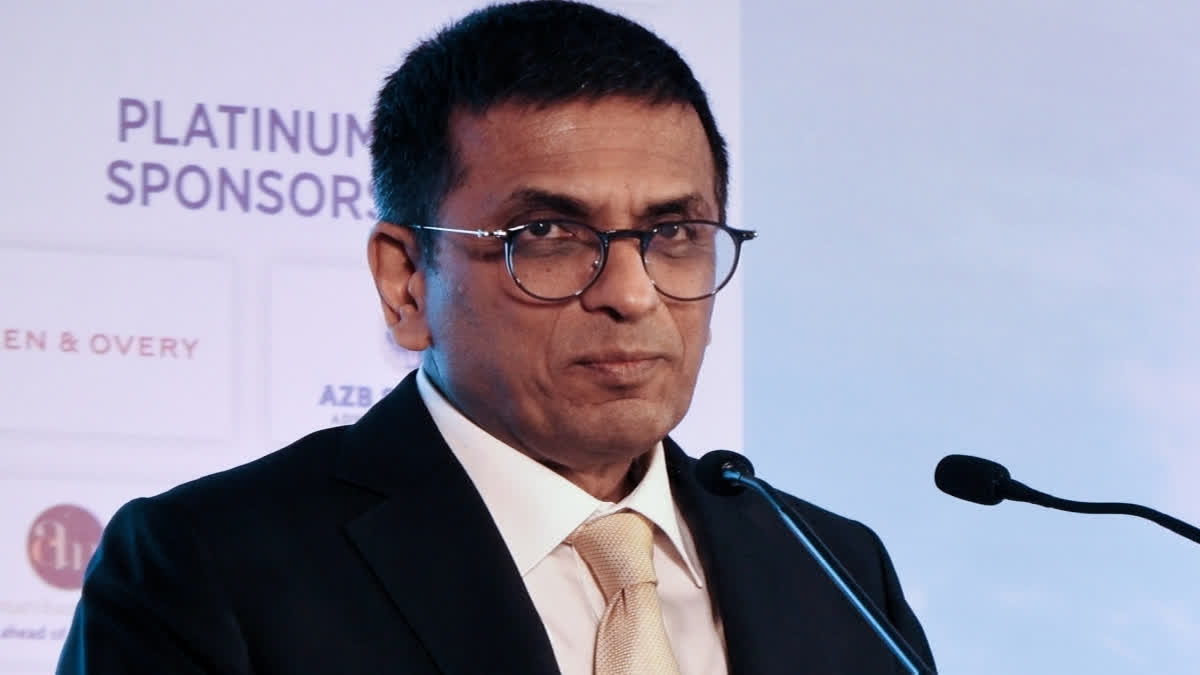New Delhi: Chief Justice of India D Y Chandrachud on Tuesday revealed it was President Droupadi Murmu's speech on the plight of inmates that "kindled" a conversation, prompting the publication of a report by the Supreme Court.
CJI Chandrachud, speaking at the release of "Prisons in India: Mapping Prison Manuals and Measures for Reformation and Decongestion" at the Rashtrapati Bhavan, thanked the President for her "stirring speech" highlighting the plight of prisoners, especially undertrials, at the 2022 Constitution Day celebrations.
"The speech of the President kindled a conversation at the Supreme court and culminated in one of the reports being released today. This report is a result of the President’s vision and it is but appropriate that it is being released by her," he said.
The CJI added, "I daresay that this is an example of what can be achieved when the different branches of the state share a constitutional goal." Apart from the report on the prisons, the President released "Justice for the Nation: Reflections on 75 years of the Supreme Court of India" and "Legal Aid through Law Schools: A Report on the Working of Legal Aid Cells in India".
While saying the hallmark of all the publications was the element of transparency, the CJI said, "We have tried to hide nothing at all and our disclosure is full and fair." Several prominent persons, including CJI-designate Justice Sanjiv Khanna and Union Minister of State (independent charge) of the Ministry of Law and Justice Arjun Ram Meghwal, were in attendance.
CJI Chandrachud said the release of the three publications was a "continuation of the celebrations" to mark the 75th anniversary of the establishment of the Supreme Court of India. He emphasised that the three publications of the Supreme Court were of "seminal importance" being "moments of self-reflection" both for the Supreme Court and the larger judicial system.
The CJI shared that the prison report analysed the prison manuals of all states and dealt with the aspects that had seldom received institutional attention, such as menstrual equity and reproductive rights for women prisoners apart from de-addiction initiatives.
"One of the significant findings of the study was that the caste of prisoners often determined the work which they are allotted, with inmates from oppressed castes being allotted tasks related to sanitation," the CJI said, underlining the top court recent ruling on caste-based discrimination no longer being permitted in jails.
He also outlined the crucial function of legal-aid clinics in law schools and said the report titled "Justice for the Nation" comprised essays by judges, eminent jurists, academicians, and lawyers on the key themes and trends in the Supreme Court's jurisprudence. "Mr Fali Nariman turned in his report on e-mail to me just the afternoon before fate took him away from us," the CJI said.



